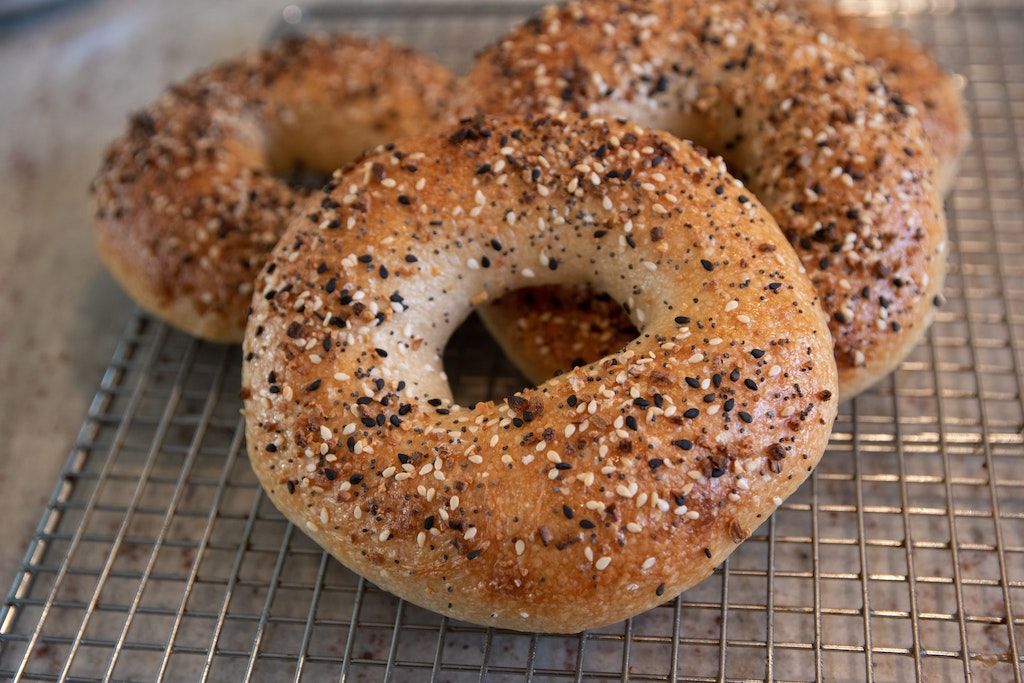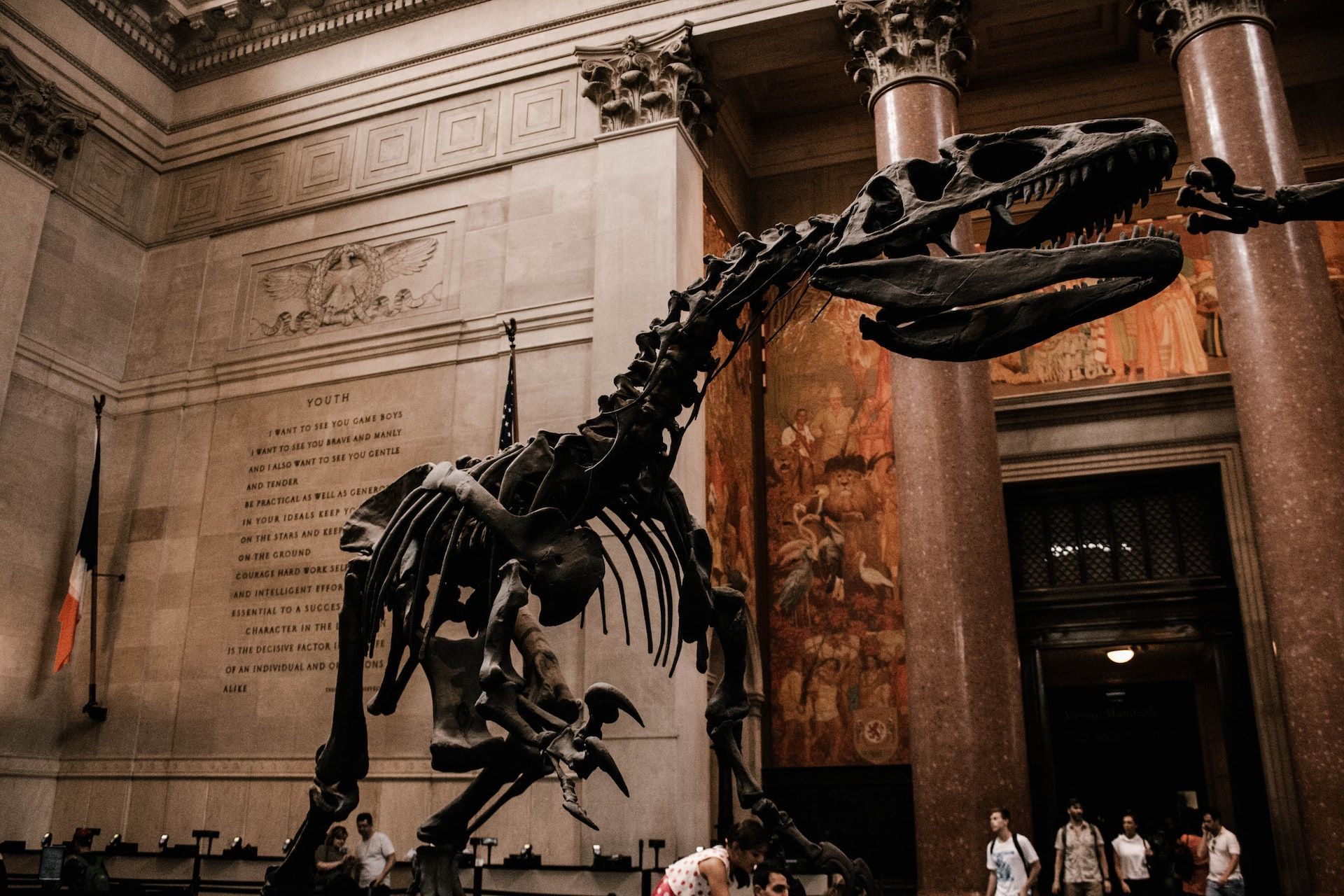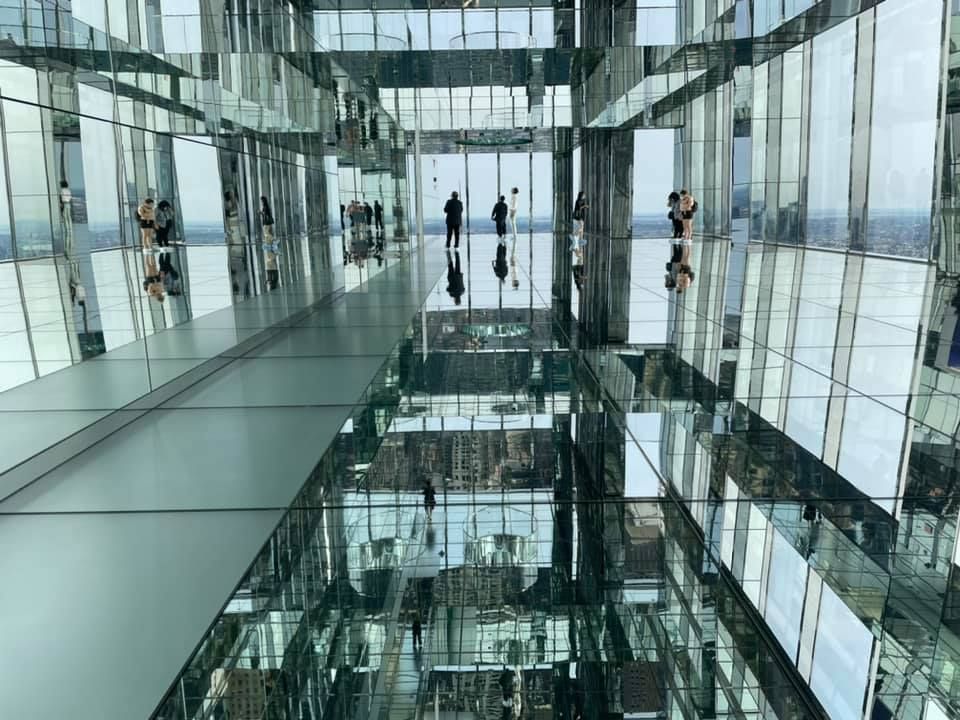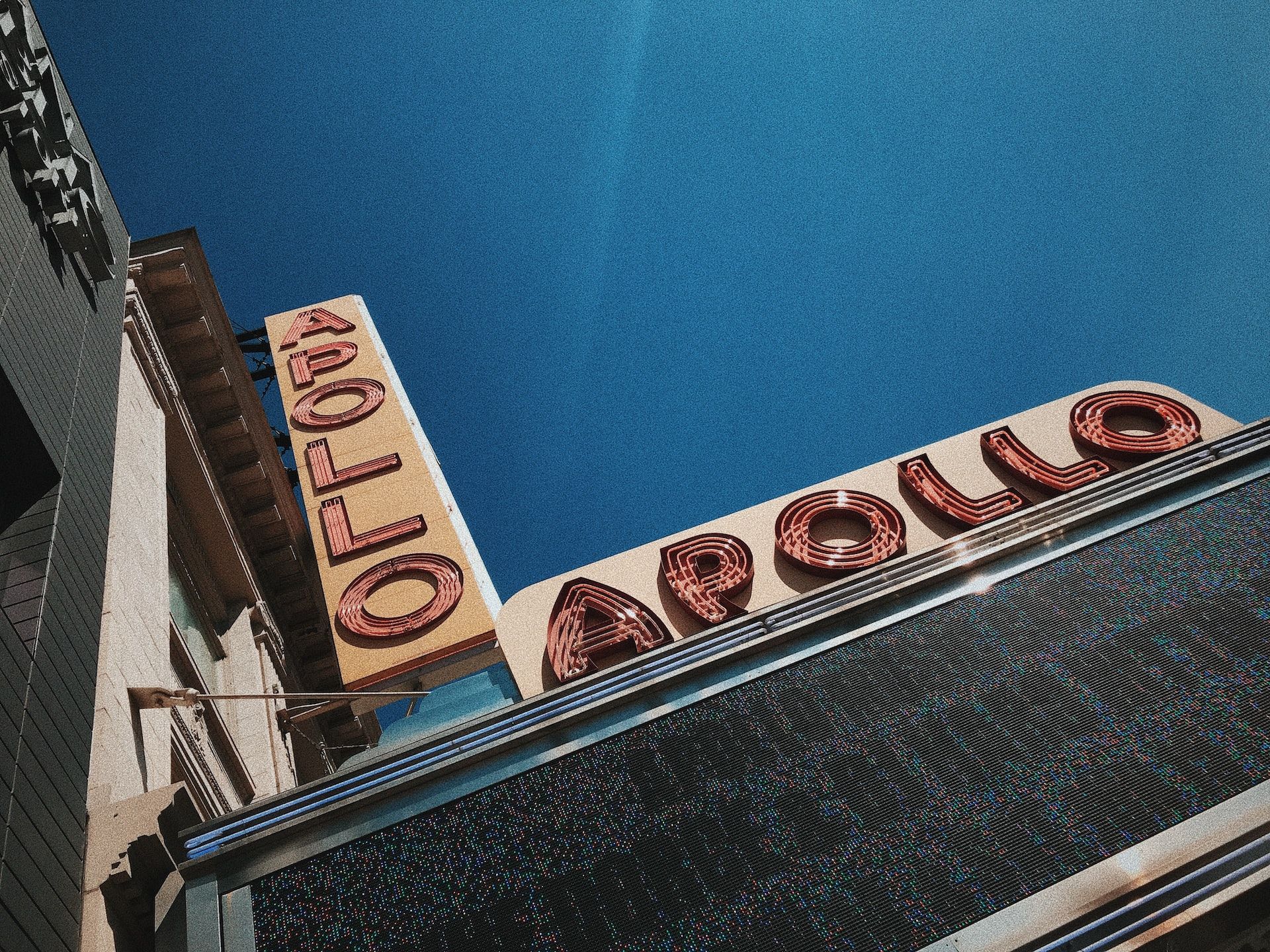Manhattan is often the first destination within New York City that visitors head to—and it’s often the busiest of the city’s five boroughs.
As a major financial and commerce hub, with various neighborhoods and world-famous landmarks, out-of-towners can come across many places in Manhattan for sightseeing, dining, and shopping. Here’s an introductory travel guide to Manhattan.
What To Know When Visiting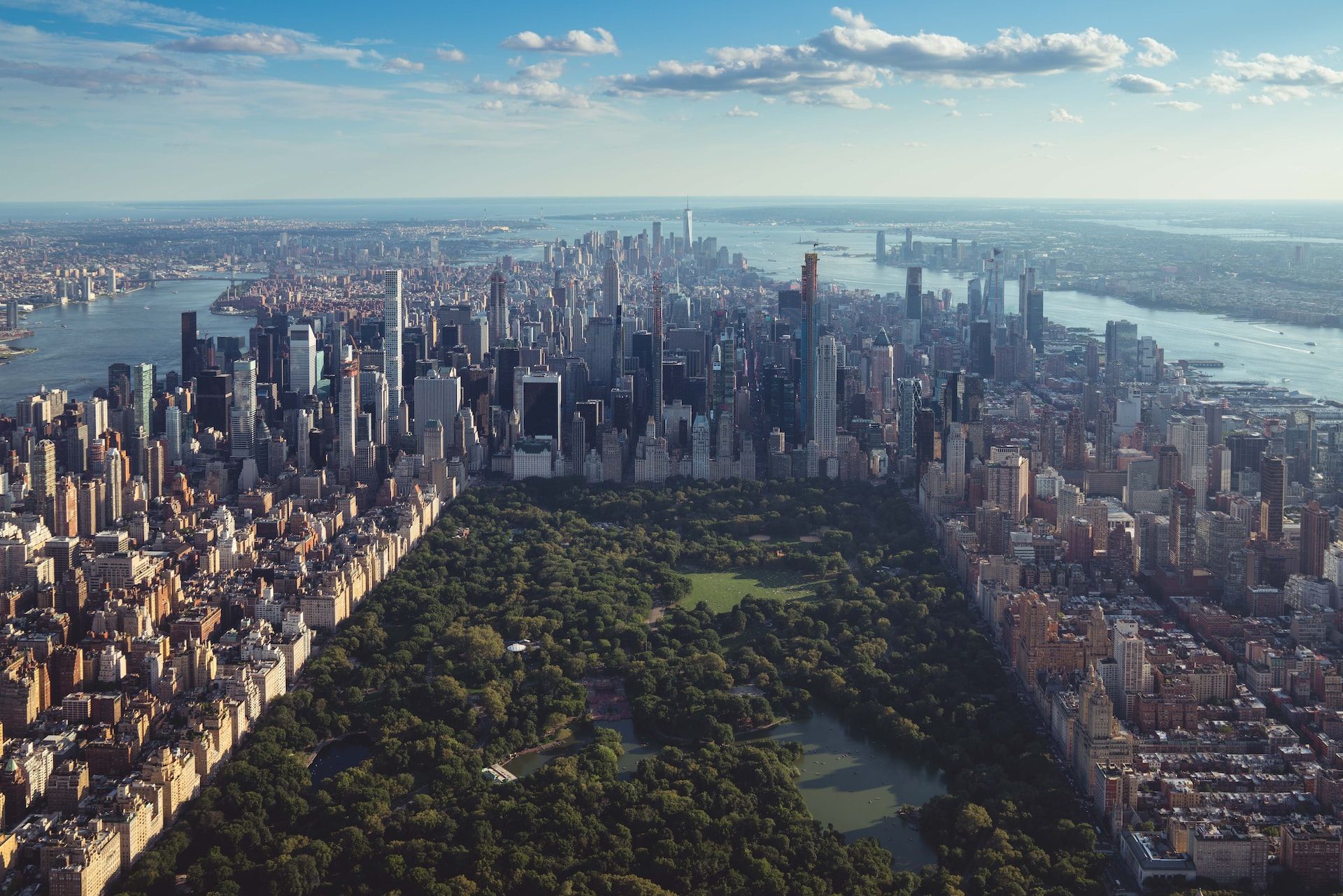
Some of the best resource guides on Manhattan are local newspapers, video and online blogs, and NYC & Company, the city’s tourism board.
The first thing to know when visiting Manhattan is to understand how to get around. Geographically, much of Manhattan goes by what’s known as the Grid. Established by the Commissioners’ Plan of 1811, in response to the city’s swelling growth of population, the Grid is a layout plan that was developed going northward, from above Houston Street to then 155th Street.
It works like this. Manhattan’s avenues run north (uptown) to south (downtown) and streets run east to west (crosstown). The middle portion of Manhattan is generally referred to as Midtown.
Most of the streets are numbered, with 1st avenue starting on the east side of Manhattan and then ascending as they go to the west side (which ends with 12th avenue) or uptown.
Exceptions include cross streets such as Broadway and Columbus, Lexington, Park and Madison avenues. 6th Avenue is more so referred to as the Avenue of the Americas. Before 14th Street, streets go more by names and can be routed differently.
Best Time To Go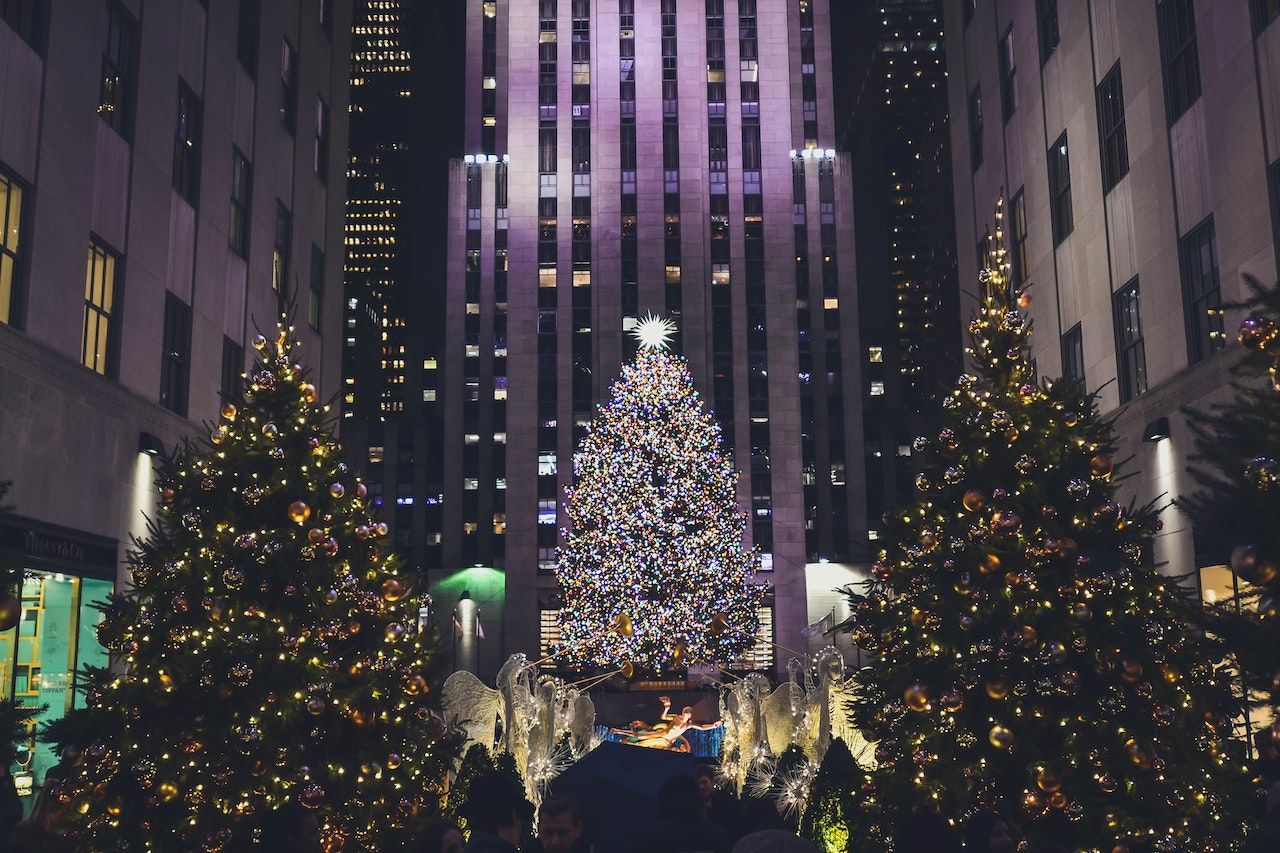
Autumn is probably one of the most beautiful times to visit Manhattan, as the season ushers in events such as Village Halloween Parade and New York Comic Con and fall foliage. Yet the most famous time to visit Manhattan is around the holiday season, to view the Rockefeller Christmas Tree and other festively decorated venues.
Winter can slow the pace of Manhattan down, where there are various tourism promotions to encourage more foot traffic. However, it’s best to dress in layers as temperatures can vary.
Summer is often a busy season, but the weather gets pretty hot and humid. Crowds can gather for Macy’s 4th of July Fireworks Spectacular or wait in line for tickets to Shakespeare in the Park at Central Park’s Delacorte Theatre.
Usually, January and February are wintry cold months, but they could be cost-saving. During this time of year, special discount promotions can be offered through NYC & Company, the city’s tourism board, or special rates offered through hotels.
Best Ways To Get Around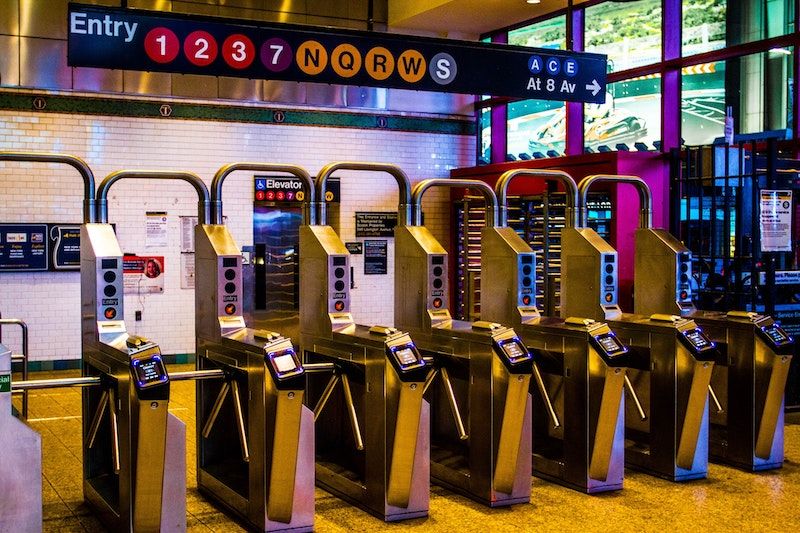
There are a number of ways to get around Manhattan. Walking is often a top option but taxicabs and Uber are other alternatives. Citi Bike, a bike rental share program, is another choice but taking public transit is very common.
Run by MTA, New York City’s subway treks all around Manhattan. This underground transit network encompasses stops at stations placed throughout the borough.
Now through at least 2024, the MTA MetroCard can be used as a tender for entering the subway system, only requiring a single swipe; as of January 2023, the cost is $2.75, but it is subject to increase. If buying a new MetroCard, there is an additional $1 fee on top of the pay-per-ride amount purchased, but the card can be reused and refilled.
The MTA has begun implementing OMNY, a contactless payment system that works by tapping a credit or debit card or smart device with a digital wallet onto a reader. It charges the same current fare price.
Each subway line has a color-coded letter or number with specific routes; some intertwine with others. While their set routes are displayed on maps, they can be altered at times because of required track maintenance, weekend and holiday schedules, or sudden changes.
Use Google Maps and refer to MTA Weekender for mapping out and checking the status of subway routes. MTA also runs the public bus system, which also takes OMNY and MetroCard.
Where to Stay In Manhattan
From high-end hotels, to major hotel chains, to boutique properties, Manhattan has many lodging options.
Some visitors may choose to stay in Midtown, due to its proximity to Grand Central Terminal and other major spots, but consider staying in another Manhattan neighborhood to get a different perspective. Here are some of the top-ranked hotels in Manhattan.
Budget Accommodations
- Address: 230 E 51st St, New York, NY 10022
- Amenities: Outdoor garden and rooftop deck. Note that some rooms have private bathrooms, but there are multiple shared bathrooms on every floor.
- Address: 570 Tenth Ave at W 42nd St, New York, NY 10036
- Amenities: Hip atmosphere, rooftop restaurant and fitness center.
Mid-level Accommodations
- Address: 2130 Broadway, New York, NY 10023
- Amenities: Located near Upper West Side attractions including Central Park, Beacon Theatre, the American Museum of Natural History and Lincoln Center.
The Lexington Hotel, Autograph Collection
- Address: 511 Lexington Ave, New York, NY 10017
- Amenities: On-site Starbucks, bar, fitness center and pet-friendly rooms.
Luxury Accommodations
- Address: 455 Madison Ave, New York, NY 10022
- Amenities: On-site salon services, fitness center, dog-friendly, 24-hour laundry and dry cleaning and “Only At The Palace” experiences.
- Address: 438 W 33rd St, New York, NY 10001
- Amenities: Lobby bar, on-site restaurant, concierge team and a 24/7 Fitness Center and Movement Studio.
A bagel is a famous New York City order.
Manhattan’s Best Eateries
Dining in Manhattan can please any appetite, with NYC classics, fine dining, cuisines from cultures all over the world, or trendy dishes.
Newcomers and longtime establishments round out this mix. Most may require advanced reservations that can be done via their website or booking services such as OpenTable or Resy.
Bagels
Start your morning with a bagel with schmear from popular bagel shops such as Ess-a-Bagel, Murray’s Bagels, Black Seed Bagels, and Tompkins Square Bagels.
Pizza
Pizza is synonymous with NYC with places to order from subject to preference. Depending on where travelers go, they can order slices and/or whole pies. High-ranking spots in Manhattan include Prince Street Pizza, Joe’s Pizza, Rubirosa, Lombardi’s, Pronto’s, and John’s Of Bleecker Street.
Delis
Delis are an NYC institution, in serving specialties such as pastrami on rye and egg creams. While Katz’s Delicatessen is on many a visitor’s list, other good Manhattan delis include Sarge’s and 2nd Avenue Deli.
Longtime Establishments
Manhattan has the oldest restaurants in New York City. They include Fraunces Tavern in Lower Manhattan, whose roots go back to the time of the American Revolutionary War; Delmonico’s, within the Financial District and with past customers including Mark Twain; Old Homestead, the longest continuing operating steakhouse in America; and PJ Clarke’s, which was founded in 1884. Also within this list, Keen’s Steakhouse has some interesting decor. Its ceiling is adorned with clay smoking pipes belonging to their club members.
Food Halls
Food halls are also a popular trend. Among them, Chelsea Market is the former location of the Nabisco Cookie Company. This one-time factory now holds various eateries and retail businesses. Other Manhattan food halls include Urban Hawker, Essex Street Market and the Market Line, The Hugh, Urbanspace at 570 Lex, Mott Street Eatery, and Tin Building by Jean-Georges.
Things To Do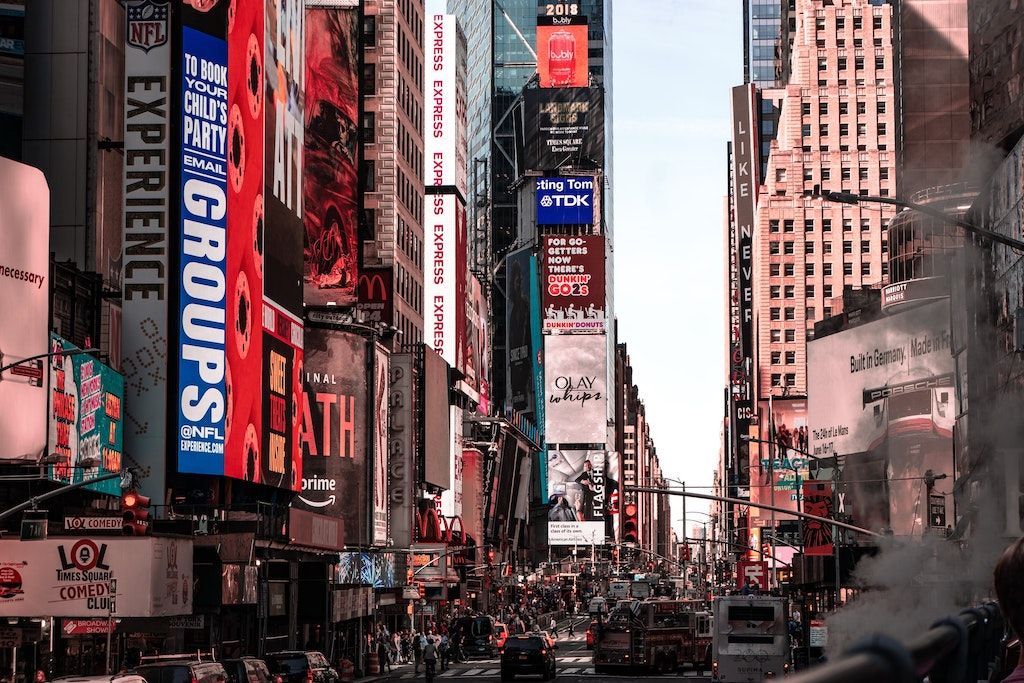
While Manhattan has much to offer visitors, here are a few must-dos.
Go to Broadway Play or Musical
Attending a Broadway show is a must, as many musicals and plays are put on at theaters within or off of Times Square. Hot tickets can extend to “Hamilton,” “Wicked” and “Six: The Musical.”
Learn more about the history of theater in NYC at The Museum of Broadway, also located in Times Square. Then spend some time in Times Square, a major tourist attraction.
The Museum of Broadway tells of the history of theater in New York City through a timeline of events and then rooms full of props, costumes, and other memorabilia from musical and drama productions that were groundbreaking.
- Admission: Starting at $29 with a flexible entry admission at $29
- Address: 145 W 45th St, New York, NY 10036
Visit a Museum
Manhattan’s museums center on art, history and other interesting topics. Travelers can spend a whole day at The Metropolitan Museum of Art, whose collection holds over 5,000 years of art from around the world.
It is located along Fifth Avenue on Manhattan’s Upper East Side in “Museum Mile” that includes El Museo del Barrio, the Museum of the City of New York and the Solomon R. Guggenheim Museum.
Other noteworthy art museums include the Whitney Museum of American Art and the Museum of Modern Art.
The American Museum of Natural History on the Upper West Side has an incredible dinosaur wing; it’s across the street from the New York Historical Society. On the Lower East Side, the Tenement Museum is inside a real-life tenement that tells the stories of the people who once lived here. The National Sept. 11 Memorial and Museum commemorates the attacks on this fateful day in 2001 along with the 1993 bombing of the World Trade Center.
The Metropolitan Museum of Art
- Admission: $30 for adults; $22 for seniors; $17 for students; New York State residents and New York, New Jersey, and Connecticut students pay as they wish
- Address:1000 5th Ave, New York, NY 10028
Whitney Museum of American Art
- Admission: Tickets start at $25 for adults and $18 for seniors, students and visitors with a disability. Museum admission is Pay What You Wish on Fridays, 7–10 pm.
- Address: 99 Gansevoort St, New York, NY 10014
- Admission: Tickets start at $25 for adults and $18 for seniors and visitors with a disability, and $14 for students with an ID.
- Address: 11 W 53rd St, New York, NY 10019
American Museum of Natural History
- Admission: $28 adults, $22 students with ID and seniors, $16 children ages 3-12. Pay as you wish for New York, New Jersey or Connecticut residents.
- Address: 200 Central Park West, New York, NY 10024
- Admission: Starting at $30
- Address: 103 Orchard St, New York, NY 10002
National September 11 Memorial and Museum
- Admission: Starting at $29 adults, $17 youth, $23 for young adults, college students with ID and seniors
- Address: 180 Greenwich St, New York, NY 10007
Head to an Observation Deck
See New York City differently from up above. Presently, Manhattan has five year-round observation decks. Each has a different take on the city skyline.
The Empire State Building is the long timer of this bunch, as this landmark NYC skyscraper has both its original 86th-floor observatory and 102nd-floor observatory. The building also has exhibition spaces highlighting different periods of its history since its opening in 1931.
Top of the Rock, which is positioned 70 floors above Rockefeller Center, has three levels of indoor and outdoor observation decks. Beginning in February 2023, the mezzanine level and the observation decks will be under construction, but the venue will remain open.
Located between the 100th and 102nd floors of the One World Trade Center, One World Observatory offers views from an indoor climate-controlled space. There’s also a restaurant, ONE Dine, and bar, ONE Mix, on the 101st floor, with New York-inspired menus.
Located at Hudson Yards, The Edge is said to be the highest outdoor sky deck in the Western Hemisphere. It is suspended over 1,100 feet up with 7,500 square feet of outdoor space. Its glass floor has visitors looking 100 stories down, while angled glass walls lean over the city. There’s also the opportunity to scale the outside of this skyscraper, then lean out and look down.
SUMMIT One Vanderbilt opened in 2021 and puts a spin on the meaning of an observance deck. Summit One Vanderbilt is described as a three-level multisensory art immersion where, first on the 91st floor, visitors encounter an exhibit called Air by Kenzo Digital that is full of floating balloon-like orbs.
Then on the 92nd floor, there’s a glass-bottom ledge extending 1,100 feet over Madison Avenue. On the 93rd floor, there’s a Nordic-themed café and a glass-bottom exterior elevator.
Empire State Building
- Admission: Starting at $44 adults, $38 children and $42 seniors
- Address: 20 W 34th St., New York, NY 10001
Top of the Rock
- Admission: Tickets start with general admission at $40 adults, $34 children and $38 seniors
- Address: 30 Rockefeller Plaza, New York, NY 10112
One World Observatory
- Admission: Ticket levels start at tandard at $43 for general admission.
- Address: 117 West St, New York, NY 10006
The Edge
- Admission: Ticket levels start at general admission at adults (online, $38, in person, $40), children (online, $33, in person, $35) and seniors (online, $36, onsite, $38)
- Address: 30 Hudson Yards, New York, NY 10001
SUMMIT One Vanderbilt
- Admission: Ticket levels start $39 for general admission.
- Address: 45 E 42nd St., New York, NY 10017
Visit a Park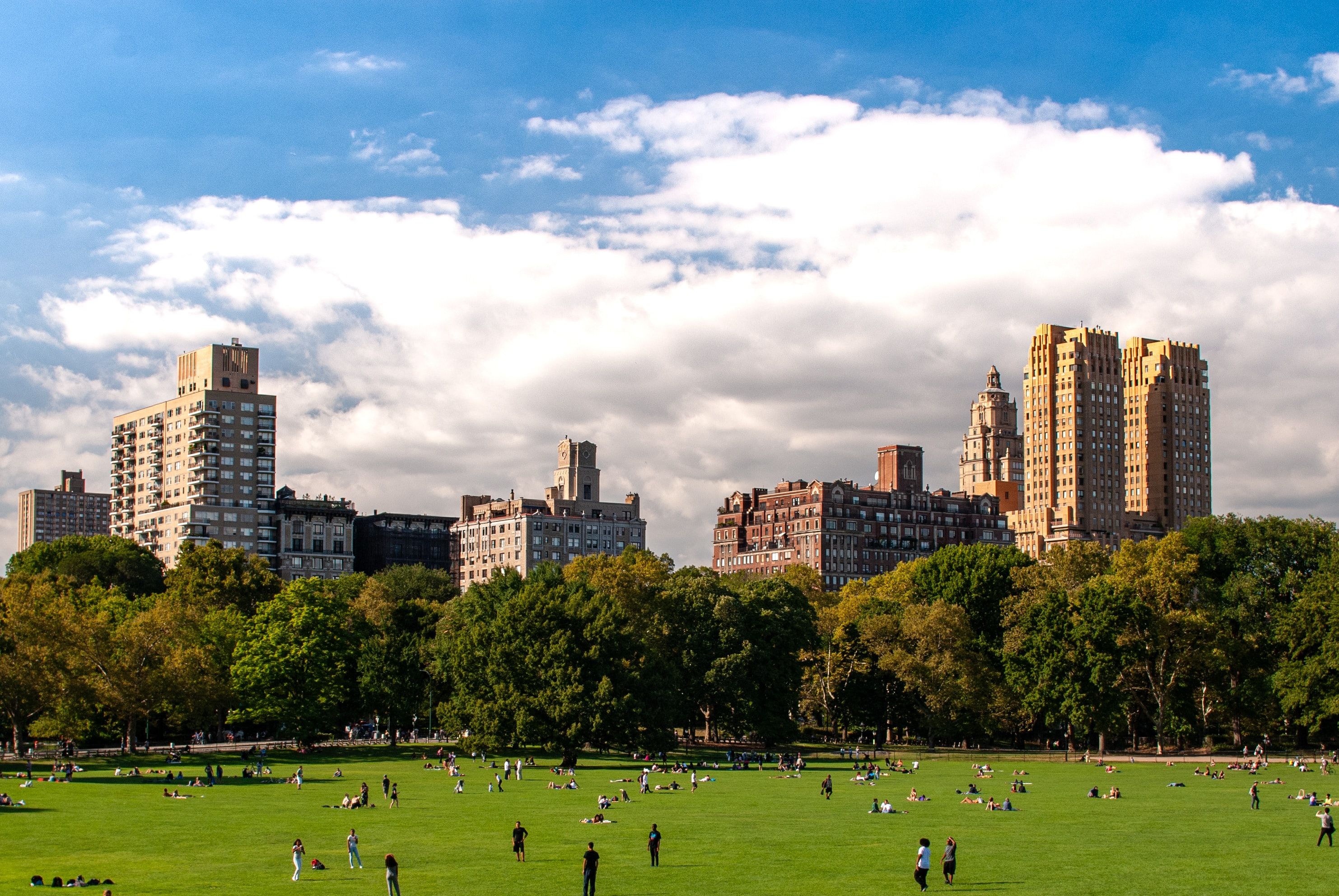
Made famous in movies and on TV, Central Park is one of Manhattan’s top attractions. It sits in the middle of the Upper East and Upper West sides and is home to a zoo, various statues and gardens, a castle, bridges, and meadows. While many wander around the park on their own, guided walks led by park staff are held regularly.
Washington Square Park in Greenwich Village is smaller than most NYC parks but it has the famous Washington Square Arch and is based near much of the neighborhood’s activity.
Bryant Park, right behind the New York Public Library, holds events such as an annual holiday market with an ice skating rink and a movie night series in the summer.
The High Line is a public green space on what was once a freight rail line with its direction going to and from the Chelsea/Meatpacking District to Hudson Yards. Riverside Park is on Manhattan’s Upper West Side and had a scene in the film, “You’ve Got Mail.”
Popular Neighborhoods In Manhattan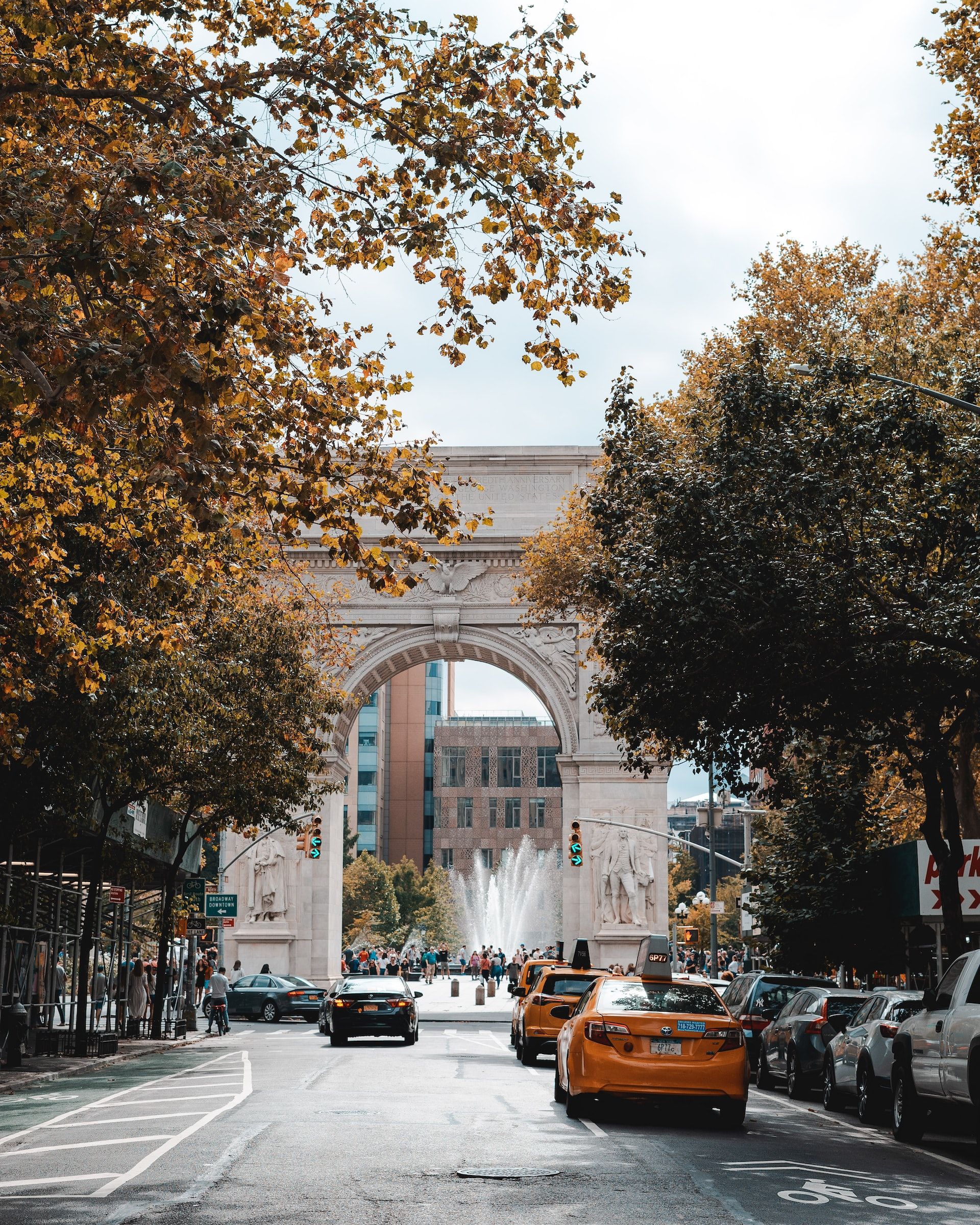
Manhattan consists of many neighborhoods varying in what they’re known for. Most can be reached by subway along with a bus, cab and Uber.
Chinatown is a vibrant neighborhood with tea shops, bakeries, grocery markets, and restaurants and eateries reflecting the diversity of Asian cuisines such as Cantonese. Try dumplings, dim sum, Peking duck, steamed rice rolls, congee, and pork buns.
Suggested spots include Nom Wah Tea Parlor, Hop Kee, Mott Street Eatery, and the Original Chinatown Ice Cream Factory. It’s also the location of a Lunar New Year Parade, which rings in this holiday season.
The Lower East Side was once home to arriving immigrants and has become a trendy neighborhood known for hip restaurants and cool street art.
Much of its history relating to those of the Jewish faith who came to reside in the Lower East Side is still prominent at Russ & Daughters, a Jewish appetizing store that also has a separate café, and Yonah Schimmel’s Knishery, which is known for their knishes. Other places to see include Economy Candy, Sugar Sweet Sunshine Bakery, Dirty Candy, and Essex Market.
The Apollo Theater
Harlem is rich in Black history, which can be experienced in many ways. Attend a performance at the Apollo Theater or visit the Schomberg Center for Research in Black Culture. The Abyssinian Baptist Church permits the public to attend a worship service but note to dress modestly and practice respectful observance.
Try soul food at Sylvia’s Restaurant, Melba’s, Amy Ruth’s, or, for vegans, Seasoned Vegan. Another famous Harlem restaurant is Red Rooster Harlem by celebrity chef Marcus Samuelsson. Jazz clubs are also popular such as Bill’s Place and Minton’s Playhouse.
SoHo is a trendy shopping neighborhood but it also has incredible cast iron buildings and art galleries. The East Village has a gritty legacy but it’s seen as a cool place to be. Popular spots in East Village include McSorley’s Old Ale House, Death & Company, Nuyorican Poets Cafe, and Book Club Bar.
Little Italy gives off a touristy vibe but crowds still come out every September for the Feast of San Gennaro Festival. Travelers can also still find old-school Italian dining at Benito One, Umberto’s Clam House, and Lunella. After dinner, buy a cannoli from Ferrara or Caffe Palermo.
How To Spend A Perfect Day In Manhattan
The perfect day in Manhattan comes down to what travelers most enjoy about the city. Heading over to the Empire State Building for a tour is probably a must for most visitors, especially those on their first trip to New York.
But some adventurers may want to spend a meandering afternoon in Central Park, while others will want to sample breakfast, lunch, and dinner at restaurants that can hold their own against Brooklyn’s offerings.
Whatever visitors decide to do, the memories are well worth planning a vacation to Manhattan.
FAQ
Q: Is Manhattan Safe?
As with any major city, crime can occur. In Manhattan, it’s best to stay aware of one’s surroundings and safeguard valuables. Avoid wearing anything flashy or expensive looking.
In the evening, stay near well-lit areas especially around ones with restaurants and nightspots. Also at night, avoid walking while wearing headphones or along side streets or residential streets as they are usually quieter and darker at night.
The same advice applies to the subway. Usually, it is crowded during rush hour (usually from 8 to 10 am) and then the evening crowd (from 5 to 7 pm). For safety reasons, try to not stand right up against the platform.
Try to avoid taking the subway late at night, as there are fewer people around and trains can run slower. If you still have to go, try to get into a subway car that has other people or is near the onboard subway conductor. Take an Uber or taxi instead. If you’re approached by panhandlers, avoid eye contact and keep walking.
Q: How can I save money while seeing Manhattan?
Manhattan can be expensive, but here are some money-saving tips.
- With eating out, look for specials or go during happy hours for discounts on food and drink. Drug stores can also help with saving money on beverages such as bottled water. Lunch is often a good time to dine as combination orders can be filling but easier on the wallet.
- Certain foods can be more wallet-friendly such as a slice of pizza or a serving of dumplings or empanadas, or consider shopping at a grocery store with pre-made meals. In the winter and summer months, NYC Restaurant Week has restaurants offering pre-fixe lunch and/or dinner menus that often include three courses. They can include ones in Manhattan as well as in Queens, Brooklyn, the Bronx, and Staten Island.
- Most restaurants can take debit and credit cards yet some businesses may require a spending minimum. With popular restaurants, book reservations in advance directly with them or via booking sites such as OpenTable or Resy.
- As for museums and other public venues, read up on their visitor hours and policies beforehand; some may be closed on certain days. Some may have pay-as-you-wish admission at times or free admission days. The NYC CityPass includes one-time admission to the Empire State Building, the American Museum of Natural History, and other top NYC attractions.
Q: What is Manhattan NY known for?
Manhattan is known for its culture, entertainment, and art. Highlights include immersive art experiences, great food (including gelato), and dives into history—like the Manhattan Project.
